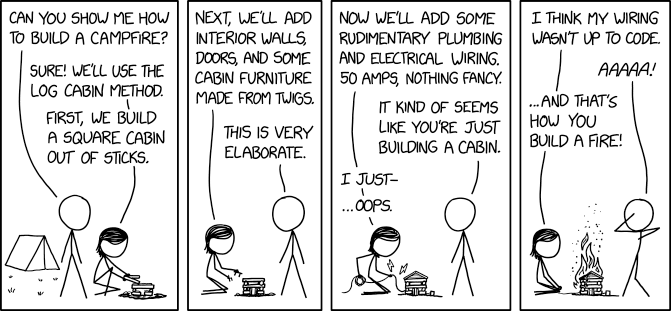Here are five books about young writers that I loved when I was a young writer - and reader - myself.
1. Seven-Day Magic (1962) by Edward EagerOn a routine trip to the local library, five children discover a mysterious book that can transport them to other times and worlds, as long as their chosen destinations are somehow connected to literature.
My mom read this book aloud to me (along with its predecessor,
Half Magic) when I was around seven or eight years old and already just as invested in fictional worlds as the main characters. They might have, in fact, been the first explicitly genre-savvy characters I ever encountered. (“The best kind of magic book… is when it’s about ordinary people like us, and then something happens and it’s magic.”) In what is both the funniest and the creepiest chapter, a disagreement causes Barnaby, the resident “person with ideas,” to split off from the rest of the group and seek refuge in a story that he’s been secretly writing (and in his dashing fantasy persona, “Barnaby the Wanderer”). However, he nearly loses himself to an eerie corner of the world that he’s imagined until his friends show up to rescue him. I’m making that sound like the climax of a story about how Imagination Is Bad And Dangerous, Actually… but I don’t think that’s the message that this book, or even that particular section, is sending. Instead,
Seven-Day Magic is about how powerful and transformative stories and imagination can be, even when they lead us to unexpected places that we shouldn’t have to face alone.
2. Daphne’s Book (1983) by Mary Downing HahnSpeaking of messages about the role of fantasy in children’s lives: some years ago,
![[personal profile]](https://www.dreamwidth.org/img/silk/identity/user.png) rachelmanija
rachelmanija wrote a couple of
thoughtful posts about middle-grade “problem novels” that used make-believe as a plot device:
The basic plot is that Protagonist Kid meets a kid (Tragic Kid) who claims that magic (elves, etc) is real. The kids do magic spells, make elf homes, etc. Protagonist Kid usually isn't sure that the magic is real, but wants to believe that it is. At the end it is revealed that magic is definitely not real, there are no elves, and Tragic Kid was making it all up to cover up for the fact that their father is abusive/their mother is an addict/they have no parents and are living alone/etc. Protagonist Kid is sadder but wiser.
I thought about those tropes when I was trying to write a summary of
Daphne's Book, which does contain some of them, up to a point. Seventh-grader Jessica is paired with the class outcast in a storybook-writing contest, and their collaboration evolves into a genuine friendship that is jeopardized by revelations about Daphne’s unsustainable home life. However, Hahn ends her story on a more hopeful note than most of the books that Rachel references in her discussion, and Jessica and Daphne’s creativity is ultimately rewarded, not punished. There’s a lot of joy in the scenes where they’re plotting out their story together and sometimes even role-playing the characters, and the final pages reaffirm how important and even life-saving that shared imaginative space was to them.
3. The Girl in the Box (1987) by Ouida SebestyenThe victim of a random abduction, sixteen-year-old Jackie struggles to hold onto her sanity with the help of a conveniently available typewriter, on which she touch-types journal entries, pieces of fiction, and letters to her loved ones.
Gabrielle Moss’s
Paperback Crush – a book that I’ve referenced in a couple of previous TT5 entries – describes Sebestyen’s novel as:
...a Voltron made of the culture’s grimmest beliefs about child abduction. All the essentials are there: a kidnapping that occurs while the child is innocently walking through the streets of her hometown; a hideous and insensible crime that pushes the limits of human understanding; an ambiguous ending that implies but never states that the heroine is dead. No wonder so many of this book’s GoodReads reviews are written by adult women who are still traumatized by having read this in middle school.
I’m including
The Girl In The Box on this list, not because I found the story that Jackie was writing to be particularly compelling (it mostly consisted of teenage drama, implied to have been inspired by a falling-out that she had with her friends), but because I’m absolutely one of the adult women that Moss describes. Even though I didn’t talk about my reading experience on GoodReads, I vividly remember bursting into hysterical tears when I read Jackie’s farewell letter to her parents, possibly causing my own parents – not for the first time – to wonder what I’d been reading that upset me so much.
4. Libby On Wednesday (1990) by Zilpha Keatley SnyderAfter years of home-schooling with her eccentric relatives, Libby attends public school for the first time, and has trouble fitting in until she starts meeting regularly with a group of fellow student writers.
Snyder dedicated
Libby On Wednesday to readers who told her, “I write, too.” Like
Daphne’s Book, it veers at one point into “Problem Novel” territory, involving the abuse that one member of the group is facing at home. However, most of the plot focuses on the kids getting to know each other, reading their work out loud, and talking about storytelling. (I learned the phrase “constructive criticism” from this novel.) I loved every glimpse into every character’s creative process, and I enjoyed reading about Libby’s quirky household almost as much.
5. Three Lives to Live (1992) by Anne LindberghAssigned to write her life story as a school project, Garet finds herself chronicling the unexpected appearance of a girl named Daisy who tumbles into her basement from an old-fashioned laundry chute. Her grandmother (and guardian) encourages the girls to present themselves as identical twins, but Garet suspects that the woman who raised her might know more than she’s telling.
Lindbergh’s novel takes the form of Garet’s autobiography, and there’s a lot of metatextual fun to be had amidst the weird setup, weirder reveals, and the thematic explorations of sibling rivalry, identity, predestination, and the malleable nature of time. Garet’s straightforward narration occasionally takes a left turn into experiments with more stylized writing, and she devotes several hilarious pages to the advantages and drawbacks of overly descriptive dialogue attribution. I can also probably blame this book for my onetime fascination with soap operas as a cultural institution.
What are some of your favorite stories about stories? Do you identify particularly strongly with any writers in fiction?






